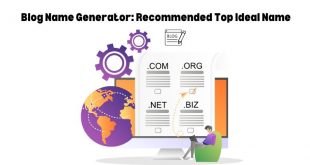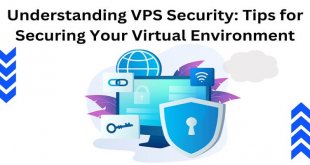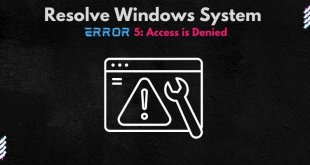Hey guys, if you want to know how should I insure home-based business then this article will help you.
Today’s business environment knows no bounds, and increasingly more people are working remotely. According to a Small Business Administration Survey, nearly 50 percent of all businesses today are based in people’s homes, and there’s no indication that the trend will slow down anytime soon. The bad news?
Most business owners don’t consider or don’t have home-based business insurance. When asked about the lack of business insurance, almost 40 percent of home-based business owners say they feel protected by other types of insurance, while nearly 30 percent consider their business too small to insure.
While the homeowner insurance covers incidents such as theft or loss of personal property, it doesn’t protect the insurer when the business equipment is destroyed. Without necessary coverage designed for your home, you expose both your employees and your livelihood to risk. For this reason, insure home-based business is a smart move.
If you have already started – or considering starting – a home-based business, it’s imperative to ensure your company and yourself, so you and your livelihood are protected against a variety of situations.
Why Do I Need Home-Based Business Insurance?
Why your home-based business may operate on a small scale, it can face most of the same risks as much bigger businesses. These include auto accidents, third-party claims, and damage to company-owned property. But to prevent all these losses, you should consider adequate insurance. While the homeowner insurance may convince small business owners that they have everything set and ready for effective business operations, it may not insure parts of your company.
If you value your business assets like professional equipment, files, and technology, you should then consider home-based business insurance.
What’s more, you should be careful if you’re using your property for activities that your insurance agency isn’t aware of, otherwise, you will cancel your homeowner’s personal liability coverage.
Before applying for business insurance, home-based business owners should ask themselves a few crucial questions, including:
- Do I keep supplies or inventory in my home or at off-site job locations?
- Do clients or customers come to my home?
- Would I lose my income if I closed my business because of damage to my home?
- Do I have employees working outside or in my home?
- Do I store employee or client records on my computer?
If your answer is affirmative to any of these questions, you may want to review your type of insurance and coverage limits. In this case, home liability insurance might prove useless for your home-based business.
Without proper coverage, your home-based business could be accountable to pay out of pocket for:
- Lawsuits
- Employee injuries
- Issues related to data loss
- Property damage
Types Of Coverage
If you’re a small business owner, there are three basic options for insuring your home-based services. For instance, you can purchase an in-home business policy, cover your business exposure through endorsement, or purchase a business owner’s package policy. Which option is the best depends on the nature and size of the business and the cost of the insurance?
In-Home Business Policy
The in-home business policy offers broader coverage than the homeowner policy endorsement and may cost around $300 annually. This policy is a middle ground between commercial insurance and a homeowners policy. Policies usually include general liability and business personal property coverages. Optional coverages such as valuable papers, business income, and account receivable may also be available.
Pro Tip: Because in-home business policies can vary widely from one insurer to another, make sure you thoroughly understand what it dies and what doesn’t cover.
Homeowners Policy Endorsement
Home-based businesses depend highly on equipment like printers and computers. Unfortunately, most homeowners’ policies offer a very reduced limit for equipment on the property premises that are used for business purposes.
The thing is, that you may be able to extend that limit by purchasing an endorsement for a modest additional premium. You may also have the option to apply for homeowners liability support to this policy – an endorsement that covers third-party privileges by delivery people or customers for injuries sustained on your property. This option is available only if you have a few business-related visitors.
Business Owners Policy
This option is available for companies that need more coverage than an in-home policy offer. The business owner policy is a commercial package specially designed for small businesses. This policy includes business income, commercial property, and general liability coverages.
Overall, the liability policy covers claims for property damage and bodily injury, including claims against the business that stream out of its completed work or products. It also ensures small business owners against Advertising and Personal Injury Liability and claims based on damage to rented properties.
Errors And Omissions (Professional) Liability
Lawyers, accountants, consultants, engineers, and other businesses that offer advice or service to customers may need errors and omissions liability policy. Commonly known as professional liability coverage, the Errors and Omissions policy covers third-party rights for financial losses resulting from mistakes made by businesses when serving customers.
Employee’ Compensation Insurance
Every home-based business must comply with state workers’ return laws. The policy to purchase employee’s compensation insurance is normally determined by the number of employees of a business. What’s more, many states require small business owners to buy coverage if they employ one or more workers. On the other hand, most states don’t require a sole business owner to purchase employee compensation insurance if they don’t have any workers.
To sum it up, applying for the insurance that is right for you is important for the future of your company, so it’s something you should discuss thoroughly with your insurer. Additionally, your insurer may also suggest supplementary forms of coverage appropriate for your typical situation, such as employment practices coverage, data compromise coverage, and key person policy, which is much like a life insurance policy that covers an employee who is critical in keeping your company running.
Also, if you like this article on how should I insure home-based business then please share it with your friends and social media followers.
 free html design Free html design templates
free html design Free html design templates






